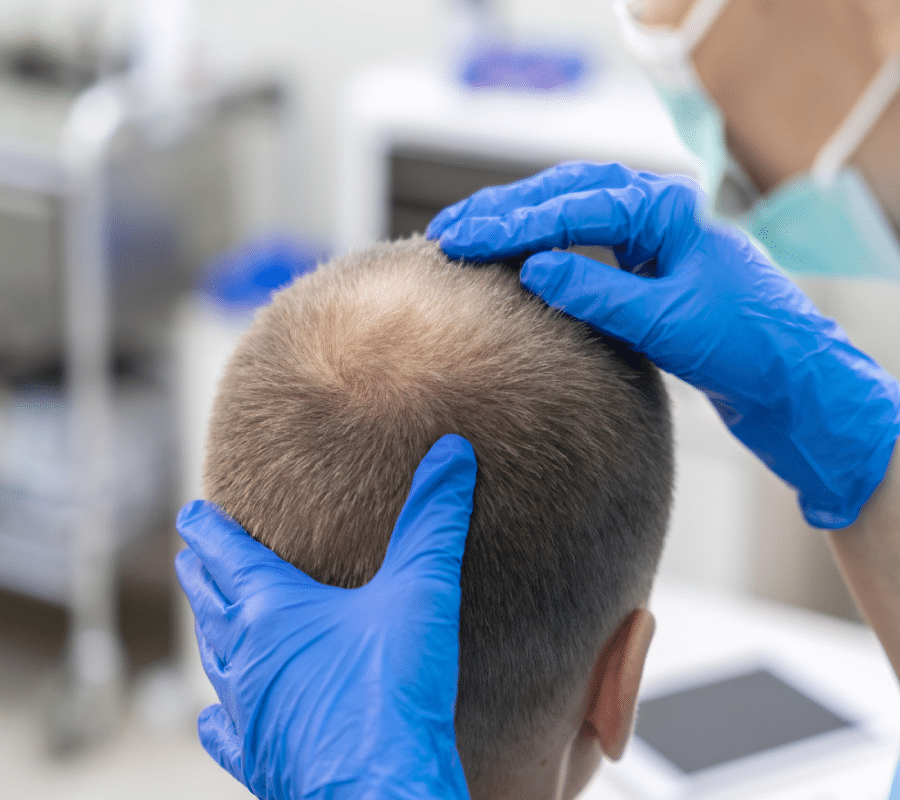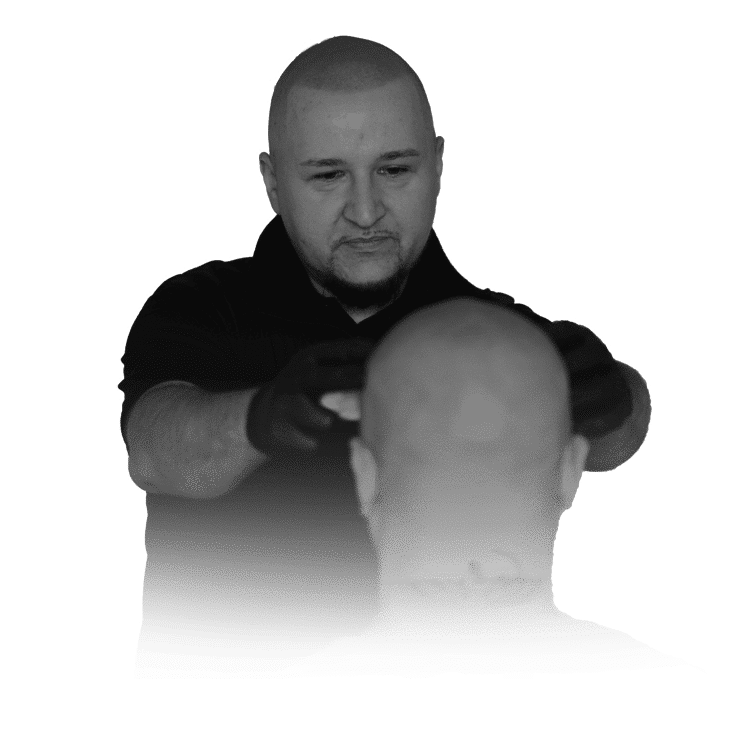Scalp Micropigmentation
What You Should Know About Stress and Hair Loss
Chronic or long-term stress puts people at risk of developing severe concerns, including depression and anxiety. Other than all the mental effects, chronic stress has long been associated with hair loss. In this article, we tell you what you should know about stress and hair loss.
The correlation of stress with hair loss
The adult scalp contains roughly 100,000 hair follicles, and each hair follicle undergoes a continuous cycle of growth and rest. Furthermore, the majority of these hair follicles are in the growth phase at any point in time.
Hair fall occurs when the follicle enters the telogen or resting stage, which can be caused by stress. To be more specific, stress can induce a resting state in hair follicles that will prevent them from producing new hair strands. When this happens, hair will fall fast without you even noticing it. This is why some people notice strands falling down even without them combing or even washing their hair.
Overall, stress-related hair loss is when your body is subjected to such high amounts of stress that your hair falls out more rapidly than it normally would. Losing approximately 50 to 100 strands a day is normal. However, if you notice abnormal clumps of hair falling from your scalp, you may be experiencing hair loss.
Is hair loss caused by stress permanent?
Stress and hair loss are not always irreversible. If stress is the cause of your hair loss, reducing your stress may be the key to re-establishing a healthy rate of hair growth. Furthermore, it would be best to consult your doctor if you observe sudden or uneven hair loss or notice more significant hair loss than usual after combing or washing your hair.
Sudden hair loss may also indicate an underlying medical problem that requires immediate care. In this case, your doctor will offer hair loss therapy choices to help you resolve this.
However, if you have established that the hair loss is not severe and still can be reversed, below are the top two ways you can minimise hair loss and promote new growth.
- Improving your diet and nutrition
Consuming a balanced, healthy diet rich in the proper nutrients is critical for your overall health. Hair loss can be caused by a lack of specific vitamins and minerals, including vitamin D and zinc.
You can seek professional advice from your doctor regarding food supplements to ensure you are obtaining the proper nutrients. They can explore your alternatives and provide the appropriate dosage recommendation for you.
Moreover, maintaining proper hydration is also critical for general wellness. Water hydrates the hair cells, enabling them to function correctly and allowing your hair to grow.
Men should drink approximately 15 glasses of water daily, while women should consume 12 cups. This amount may be obtained from food, water, or other beverages. Furthermore, an acceptable objective is to consume eight glasses of water each day, with the remainder coming from food and other drinks.
- Managing your stress
Learning how to manage your stress levels successfully may help you lower your chances of more hair loss. Naturally, this is frequently easier said than done. Therefore, you may need to experiment with various stress-management approaches before settling on one that works for you. You should consider taking a daily stroll, enrolling in a dance class, or performing yard work.
Furthermore, keeping yourself occupied with something you enjoy can also be an excellent approach to battle stress, such as volunteering, planting a garden, or initiating an artistic endeavour. Meditation and breathing techniques are excellent tools for refocusing your attention on the present moment. You may also desire to experiment with practises that mix meditation with physical exercises, such as yoga or tai chi.
Types of hair loss have been linked to high amounts of stress:
- Telogen effluvium
This is either a chronic or acute disorder that arises when stress causes hair roots to be forced prematurely into the resting state. The top causes of telogen effluvium include high fever, chronic systemic illness, and surgical trauma. Fortunately, it is generally curable and reversible, and some have seen their hair grow back after a couple of months.

- Trichotillomania
Trichotillomania is an uncontrollable impulse control disorder caused by the involuntary pulling of one’s hair from the scalp, brows, or other body parts. Hair pulling on its own is not a mental disorder, but the cause of this pulling is correlated with negative emotions such as stress, anxiety, loneliness, boredom, or irritation.
- Alopecia areata
Alopecia areata is caused by a multitude of reasons, including stress. This is an autoimmune disease where your body’s immune system mistakenly targets your hair follicles, resulting in hair loss. In certain circumstances, the condition might result in thinning hair, while other individuals may acquire bald patches. Although the condition itself is not directly caused by stress, those who go through alopecia areata experience a lot of anxiety and stress caused by hair loss.
Contact Luxe Micro Australia
If stress is the cause of your hair loss, your hair follicles have not been permanently destroyed. Stress management and proper health care may result in your hair growing at a normal pace.
Luxe Micro Australia focuses on offering the finest possible quality of service to its clients. This is true for the therapies we perform in our clinic and the amount of support and aftercare we provide. If you have been diagnosed with alopecia or are experiencing hair loss, please contact or email Luxe Micro in confidence so that we can assist you with SMP hair treatment immediately.







